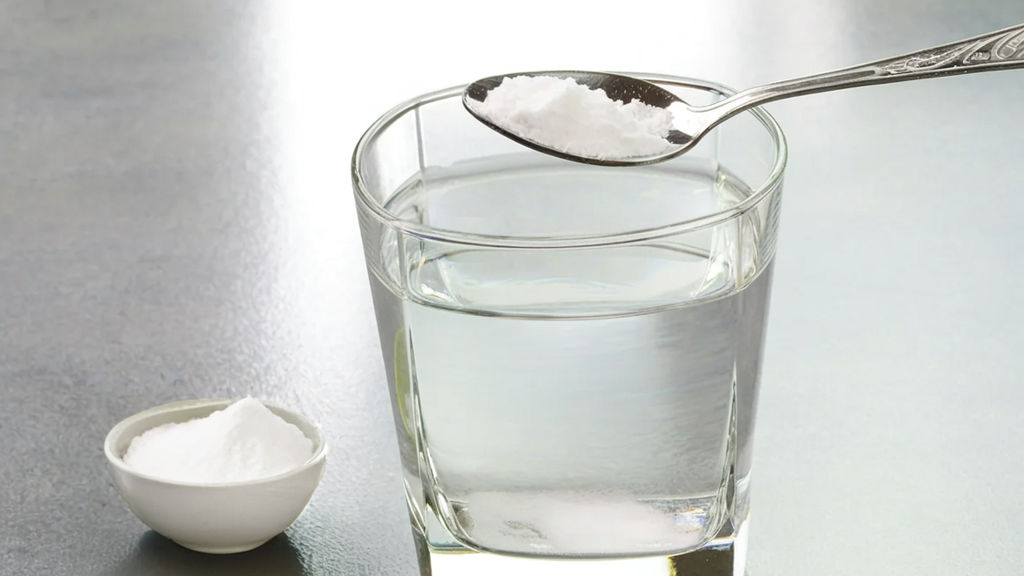Sodium bicarbonate, commonly referred to as baking soda, has emerged as a prominent legal supplement among elite athletes. Known for its utility in baking and cleaning, sodium bicarbonate is gaining traction in the sports world due to its potential to enhance performance, especially in high-intensity activities. This article delves into the history, mechanisms, usage, and effectiveness of sodium bicarbonate supplementation, offering a comprehensive analysis of its role in athletic performance.
Historical Context: Sodium Bicarbonate’s Role in Sports
The exploration of sodium bicarbonate as a performance-enhancing aid dates back to the 1930s. However, its significance in sports science gained widespread recognition in the 1980s when researchers began to systematically study its effects on various athletic disciplines. Over the decades, it has become one of the most extensively researched supplements, particularly in sports requiring short bursts of high-intensity effort.
Mechanism of Action: How Sodium Bicarbonate Enhances Performance
Extracellular Buffering Capacity
The primary mechanism by which sodium bicarbonate is believed to enhance athletic performance lies in its role as an extracellular buffer. In the body’s acid-base buffer system, sodium bicarbonate helps regulate blood pH levels, crucial for maintaining metabolic function. During intense physical activity, lactic acid accumulates in the muscles, leading to increased acidity and fatigue. Sodium bicarbonate supplementation enhances the blood’s ability to neutralize this acid, thereby delaying fatigue and allowing athletes to sustain high-intensity efforts for longer periods.
Lactate Threshold and Hydrogen Ion Clearance
One of the key benefits of sodium bicarbonate is its ability to increase the clearance of hydrogen ions from muscle tissue. This process is critical in managing the body’s lactate threshold—the point at which lactate begins to accumulate in the bloodstream faster than it can be removed. By enhancing hydrogen ion clearance, sodium bicarbonate reduces the accumulation of lactic acid, thereby improving endurance and reducing overall muscle fatigue.
Application in Athletics: Who Uses Sodium Bicarbonate?
Track and Field Athletes
Sodium bicarbonate is most commonly used by track and field athletes, particularly those competing in events lasting between 1 to 15 minutes. This window of time corresponds to the duration for which sodium bicarbonate supplementation has shown the most significant performance improvements. For instance, athletes like Keely Hodgkinson, the 800m Olympic champion, have reportedly used sodium bicarbonate to gain a competitive edge.
Cyclists and Long-Distance Runners
Beyond track and field, sodium bicarbonate is also utilized by cyclists and long-distance runners. In these sports, the intensity of effort varies throughout the race, with periods of high-intensity exertion where sodium bicarbonate supplementation can be particularly beneficial. Notably, ultra-marathon runners, such as Kílian Jornet Burgada, have incorporated sodium bicarbonate into their training regimens to enhance performance during intense phases of their races.
Sodium Bicarbonate Supplementation: Dosage and Administration
Standard Dosage Guidelines
The recommended dosage of sodium bicarbonate typically ranges from 0.2 to 0.5 grams per kilogram of body weight. This dosage is usually administered 60 to 90 minutes before competition, allowing time for blood bicarbonate levels to peak. The timing and dosage may vary based on individual responses and the specific demands of the sport.
Multiple-Day Protocols
Some athletes opt for multiple-day protocols, taking sodium bicarbonate over three to seven days leading up to an event. This approach is believed to mitigate potential side effects on race day, though there is limited evidence to suggest it provides additional performance benefits. In endurance sports like cycling, athletes may take top-up doses of 5 grams every 1 to 2 hours during long races to maintain bicarbonate levels.
Effectiveness: How Much Does Sodium Bicarbonate Improve Performance?
Research indicates that sodium bicarbonate supplementation can improve performance by 1-3%, particularly in high-intensity, short-duration activities. However, these benefits are most pronounced in elite athletes. For the average athlete, the marginal gains offered by sodium bicarbonate may not translate into significant improvements. Moreover, the effectiveness of the supplement in real-world scenarios has yet to be conclusively demonstrated, with some experts suggesting that the impact may be less pronounced than in controlled trial settings.
Potential Side Effects: Risks and Management
Common Side Effects
The most frequently reported side effects of sodium bicarbonate supplementation include gastrointestinal discomfort, such as bloating, nausea, vomiting, and abdominal pain. These symptoms are often attributed to the supplement’s role in neutralizing gastric acid, which can disrupt normal digestive processes.
Long-Term Risks
Long-term use of sodium bicarbonate, particularly in high doses, can lead to water retention, temporary weight gain, and an increased risk of hypertension due to elevated sodium intake. Athletes often report headaches and other discomforts the day after taking the supplement, which can impact overall performance and well-being.
Mitigating Side Effects
To minimize these risks, athletes may take sodium bicarbonate in smaller doses alongside high-carbohydrate meals or in enteric-coated capsules designed to dissolve in the intestines rather than the stomach. This approach can help reduce gastrointestinal distress and improve the overall tolerability of the supplement.
Conclusion
Sodium bicarbonate has established itself as a valuable supplement in the world of elite sports, particularly for athletes engaged in high-intensity, short-duration activities. Its ability to enhance extracellular buffering capacity and improve lactate threshold management makes it a powerful tool for delaying fatigue and sustaining peak performance. However, its effectiveness is most evident among top-tier athletes, and the potential side effects require careful management. As research continues, sodium bicarbonate’s role in sports science will likely become even more refined, offering athletes new strategies to optimize their performance.




